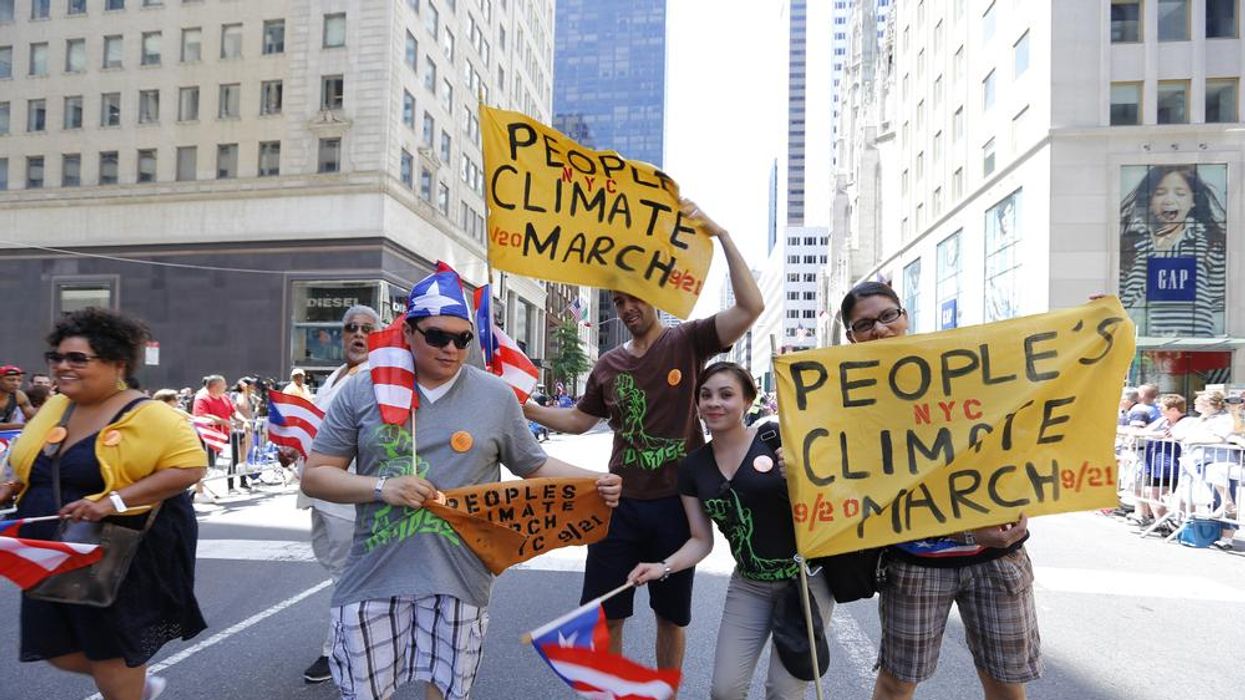Not everyone is experiencing climate change in the same way.
Environmental racism has long affected Black and Brown communities in the United States, yet Latino people are often left out of the conversation around climate change. This is especially problematic given 71 percent of Latinos say their community has been directly impacted by climate change, or the subsequent environmental disasters.
Data compiled by The Hill showcases a systemic inequality facing Latino communities as climate change alters the global landscape. Latino people are more likely to live in areas at risk of floods, as well as twice as likely to live in places affected by wildfires.
Despite being in the areas hit hardest by extreme weather, Black and Latino communities disproportionately receive less aid. They also report the highest amount of people who are uninsured.
Though it's not just environmental disasters that impact communities, as the majority face challenges brought by climate change in their day to day lives. Among Hispanic households, 30 percent do not have air conditioning, with 40 percent of Latino households unable to afford heating and cooling for their homes, which is also known as "energy insecurity."
Latinos are also exposed to harmful pollutants on a daily basis, with over 2 million living in areas where emissions from oil and gas companies, as well as processing plants and factories, create a cancer risk that "exceeds the Environmental Protection Agency's level of concern."
Exposure to pollution makes Latino children twice as likely to die from asthma than white children. Communities' disproportionate proximity to fracking wells also exacerbate the likelihood of infant mortality, heart defects, and childhood cancer.
This year, the EPA launched a racial justice division to address the systemic racism in infrastructure and climate response. It has since sued the city of Jackson, Mississippi for its handling of its ongoing water crisis, and issued a citation to the Denka Performance Elastomer synthetic rubber plant in St. John the Baptist Parish, Louisiana, which has such severe emissions that the area is colloquially referred to as "cancer alley." St. John the Baptist Parish and Jackson are both predominantly-Black.
While tackling specific cases of environment racism is necessary, experts say that more needs to be done to address the larger scale of the problem facing communities of color. Developing green energy is crucial in the fight against climate change, but despite 83 percent of Black and Latino people supporting the expansion of renewable energy, solar and wind often fail to reach their areas. In turn, they are forced to heavily rely on gas, coal, and oil for power as well as jobs.
It is important to not forget the voices of Latino people when discussing environmental racism. Black and Brown communities alike need infrastructure funding, whether it be for fixing their existing structures or investing in clean energy.
As Robert Bullard, distinguished professor of urban planning and environmental policy at Texas Southern University, previously told PBS News Hour: "We're talking about environmental racism. We're talking about infrastructure apartheid. We're talking about which communities get left out, left behind. Race is still — if you look at zip codes -- still the most potent factor that determines where money flows."
- SuperFly Actor Sentenced to 50 Years in Prison for Rape ›
- How Will AMC Reopen in July? ›
- Low Income Communities Are Risking the Most as Hurricane Ian Makes Landfall ›
- Justice Department Sues City of Jackson, Mississippi Over Water Crisis ›
- EPA Confronts Environmental Racism in Cancer Alley ›
- AOC Calls Out Democratic Party for Overlooking Latino Voters ›
- Congress Pledges $1 Billion to Countries Impacted by Climate Change - Advocate Channel ›
- EPA to Crack Down on Deadly Air Pollution - Advocate Channel ›
- Climate Advocacy Group Vows to Stop Disruptive Protests - Advocate Channel ›
- The Ozone Will Be Repaired Within Decades, UN Report Finds - Advocate Channel ›



















































